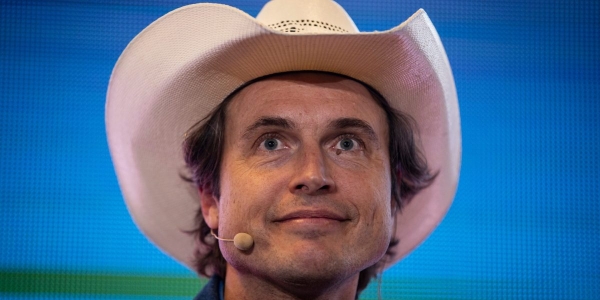
Elon Musk’s brother, a director on the board of Tesla, exercised options this week allowing him to cash out shares in the electric-car maker worth a net $17 million.
Normally such a transaction would not only be highly controversial, but indeed impossible.
The CEO’s younger sibling Kimbal is privy to market-relevant information, and there’s a so-called blackout period barring insider sales until after Tesla reports quarterly earnings on April 19.
In a regulatory filing published on Wednesday, however, the restaurateur and founder of a hydroponics farming company revealed he had lined up the transaction in December already, some four months earlier, under a so-called 10b5-1 plan.
This frees up insiders to sell shares independent of impending key events, when they have access to material nonpublic information, such as Tesla’s first-quarter financials.
Under the plan, Tesla said Kimbal Musk exercised on Monday stock options due to expire in June 2025 that granted him the right to acquire 100,000 shares at $24.73 each, representing an almost 90% discount to the previous closing price.
He then turned around and sold them all in 11 different blocks at prices between $192.78 and $202.64, yielding him net proceeds of over $17 million and leaving him with just over 1.6 million shares.
The sale nonetheless opens old wounds.
Tesla insiders have repeatedly used the stock as their own private piggy bank ever since the first COVID wave ignited a spectacular rally that saw the company’s market value vault past all other car competitors to take its place amongst the elite ranks of global megacaps.
Tesla’s history of insider selling
Ever since, the carmaker’s officers and directors—chief among them Elon Musk himself—have only let their presence in the market be felt through continuous disposals that hurt in particular their devoted base of retail investors.
This suggests insiders at the company have not believed Tesla offers an attractive enough return on their capital, a view strengthened ever since Musk seems to have forgotten his October comments that the board would consider a “meaningful buyback” of stock.
The last time insiders expressed enough confidence to acquire Tesla shares at the going market price was right before the pandemic, when the EV pioneer was worth a fifth of its current value.
At the time, Elon Musk purchased $10 million and Larry Ellison another $1 million worth of shares as part of Tesla’s $2 billion capital hike in February 2020.
Over the past one and a half years, the Tesla CEO has actually been a major seller in the market.
In total, he unloaded shares worth a combined sum of nearly $40 billion, first as a political gesture to pay federal taxes and later to fund his purchase of Twitter in October.
As Tesla shares started to plumb two-year lows, however, analysts began demanding toward the end of last year that he cease his incessant stock sales that were hurting his investors.
Under duress, he pledged in late December not to sell any further shares for at least this year.
While Kimbal Musk may live in the shadow of his far more successful sibling, he enjoys begrudging respect among bulls and bears alike for his uncanny timing.
In November 2021, the younger brother sold 88,500 shares of Tesla worth roughly $100 million, timing the peak of the U.S. equity market rally perfectly.




